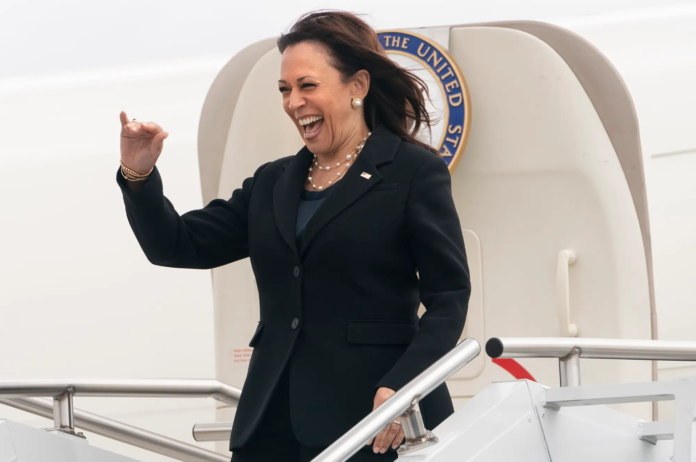Vice President Kamala Harris’s journey to Puerto Rico comes at a poignant moment, coinciding with anniversaries that stir deep reflection on the island’s turbulent history and ongoing struggles against colonialism. As Puerto Rico commemorates the abolition of slavery and remembers the tragedy of the Ponce massacre, a dark reminder of the island’s fight for sovereignty, Harris’s visit is under the microscope. Will her trip acknowledge the colonial past and present that shadows Puerto Rico, or will it skirt around the systemic issues that continue to afflict its people?
The legacy of slavery, abolished on the island in 1873, and the brutal suppression of Puerto Rican nationalists in 1937, are not mere footnotes in history; they are stark indicators of the systemic racism and colonial domination that have shaped Puerto Rico’s trajectory. Today, the echoes of these injustices are evident in the disparities and challenges faced by Puerto Ricans, from racialized police violence to economic disenfranchisement under U.S. rule.
Governor Kathy Hochul’s militarization of the NYC subway system, casting a shadow over Harris’s visit, has sparked fierce debate. This controversial move, criticized for exacerbating racial inequities and diverting attention from vital social services, mirrors the broader issue of heavy-handed governance in territories under U.S. control. Puerto Ricans, grappling with the legacy of colonialism, view such actions with suspicion, seeing parallels in their own experiences of over-policing and political repression.
The Biden administration’s response to Puerto Rico’s needs has been a mixed bag. While initiatives like the energy resilience fund signal support, the administration’s stance on contentious issues like the Supplemental Security Income case and the Jones Act reveals a continuation of policies that exacerbate the island’s economic struggles. The enduring presence of an unelected fiscal board, imposing austerity without addressing the root causes of Puerto Rico’s financial woes, is a glaring example of colonial governance that sidelines the needs and voices of the Puerto Rican people.
As Harris steps onto Puerto Rican soil, the demand for genuine decolonization and self-determination looms large. Critics of the current approach to Puerto Rico’s status question the transparency and fairness of the process, highlighting significant omissions and ambiguities in the proposed Puerto Rico Status Act. The act’s failure to address key issues, from language rights to the participation of new American settlers in referendums, has raised alarms about the integrity of the decolonization process.
Puerto Ricans, both on the island and in the diaspora, are watching closely. Their mobilization in the wake of Hurricane Maria and against government corruption has shown a vibrant, engaged community that demands respect for their identity, culture, and rights. The U.S.’s colonial legacy, extending across the Caribbean and Pacific, calls for a reckoning with the injustices inflicted on these territories and their inhabitants.
The path to decolonization is not about granting voting rights for the U.S. president—a narrative that oversimplifies the complex dynamics of colonialism. It requires a profound reimagining of the relationship between the U.S. and Puerto Rico, one that empowers Puerto Ricans to shape their future free from external dictates.
As Vice President Harris visits Puerto Rico, the moment is ripe for the U.S. to embark on a genuine decolonization journey, centering the Puerto Rican people’s aspirations and rights. It’s time for progressives to rally for a decolonization process that is transparent, fair, and inclusive, marking the end of 126 years of colonial exploitation. The future of Puerto Rico—and indeed, all U.S. territories—depends on confronting and dismantling the colonial structures that have long dictated their destinies.



